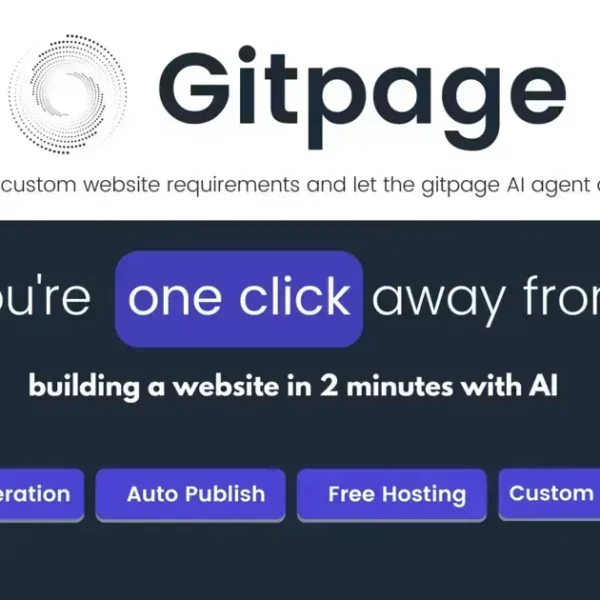A CRM project is essential for businesses aiming to enhance customer relationships and improve efficiency. By selecting the right tools, training employees, and following key implementation stages, organizations can successfully manage customer interactions, ultimately leading to increased satisfaction and sales.
CRM project management is essential for businesses looking to enhance customer relationships and improve operations. By strategically planning and executing a CRM project, companies can streamline processes and maximize benefits. In this article, we’ll dive into the key stages, tools, and best practices for managing your CRM project to ensure success.
Understanding CRM Project Basics
Understanding the CRM project fundamentals is crucial for any organization looking to improve its customer relationship management. A CRM project aims to streamline processes, enhance data collection, and foster better communication with customers.
What is a CRM System?
A CRM (Customer Relationship Management) system is software designed to help businesses manage interactions with customers. It collects data from various channels, including websites, emails, phone calls, and social media, allowing for a holistic view of customer interactions.
Why is a CRM Project Important?
A successful CRM project can lead to increased sales, improved customer service, and enhanced customer retention. By effectively managing customer information, businesses can personalize their communications and develop targeted marketing strategies.
Key Components of a CRM Project
Some essential components include data management, user accessibility, integration with existing systems, and training for staff. Implementing these elements ensures the CRM project meets the organization’s needs and operates smoothly.
Best Practices for Starting a CRM Project
To kick off a CRM project, it’s advisable to assemble a dedicated team, define clear objectives, and choose the right software that aligns with your business goals. Regular feedback from users can help refine processes and improve overall effectiveness.
By mastering the basics of CRM projects, you’re setting your business up for long-term success and improved customer relationships.
Key Stages in CRM Project Management

Executing a CRM project successfully involves several critical stages that ensure smooth implementation and effective management. Understanding these stages can help your team stay organized and focused on achieving the project’s goals.
1. Planning and Strategy
This initial stage involves defining the objectives of the CRM project. You need to identify what you hope to achieve, such as improving customer satisfaction or increasing sales. A solid strategy also includes understanding your target audience, required features, and project scope.
2. Data Gathering and Analysis
Collecting and analyzing existing customer data is vital. This stage helps inform decisions about how to structure the CRM system and which data needs to be captured moving forward. Consideration should be given to factors like data quality and compliance with privacy regulations.
3. System Selection
Choosing the right CRM software is crucial. Evaluate various options based on features, scalability, and user-friendliness. It’s also important to consider integration capabilities with existing systems within the organization.
4. Implementation and Customization
Once you’ve selected a CRM system, the implementation phase begins. This involves customizing the software to fit the organization’s specific needs. Proper training for employees is essential to ensure everyone knows how to use the new system effectively.
5. Testing and Feedback
Before fully launching the CRM system, conduct thorough testing to identify any potential issues. Gathering feedback from users during this phase can help make necessary adjustments and ensure that the system meets its intended goals.
Understanding and following these key stages will create a solid foundation for your CRM project, ultimately leading to greater success in managing customer relationships.
Tools and Software for CRM Projects
Choosing the right tools and software for your CRM project is essential for success. The right solutions can streamline processes, improve efficiency, and enhance customer relationships.
1. CRM Software Options
There are many CRM software solutions available, such as Salesforce, HubSpot, and Zoho CRM. Each offers unique features, including contact management, sales tracking, and marketing automation. It’s essential to evaluate each based on your organization’s needs.
2. Integration Capabilities
Your CRM project software should seamlessly integrate with other systems your business uses, such as email marketing tools, social media platforms, and e-commerce sites. Integration ensures that data flows smoothly between systems, resulting in better customer insights.
3. User-Friendly Interfaces
The effectiveness of any CRM system depends heavily on user adoption. Choose a solution with a user-friendly interface that is easy for your staff to learn and use. A simple design helps improve productivity and encourages regular usage.
4. Customization Features
Every business has unique needs, and the ability to customize your CRM software is crucial. Look for tools that allow you to tailor features, dashboards, and reports according to the specific requirements of your organization.
5. Mobile Access
In today’s fast-paced world, having mobile access to your CRM is important. Look for software solutions that offer mobile apps. This allows your team to access customer information and manage tasks from anywhere, increasing responsiveness and flexibility.
By carefully selecting the right tools and software for your CRM project, you can improve efficiency and boost your team’s performance, leading to better customer experiences.
Challenges in CRM Project Implementation

Implementing a CRM project can be beneficial, but it also comes with several challenges that organizations need to navigate. Understanding these challenges can prepare businesses for smoother implementations.
1. Resistance to Change
One of the most common challenges is resistance from employees. People may be hesitant to adopt new systems due to comfort with existing processes. To combat this, involve staff early on and provide training to ease their transition.
2. Data Quality and Transfer Issues
Data is at the heart of any CRM project. Ensuring data quality during transfer from old systems to the new CRM can be problematic. Businesses should conduct thorough data cleansing before migration to avoid issues like duplicate entries or incomplete data.
3. Integration Challenges
Integrating the CRM system with other existing software can pose technical hurdles. Compatibility issues between different systems can lead to delays. It’s crucial to choose a CRM that offers robust integration capabilities to minimize these challenges.
4. Insufficient Training
Often, inadequate training can lead to underutilization of the CRM system. Investing time and resources in comprehensive training programs ensures that all employees are equipped to use the system effectively.
5. Budget Constraints
Budget limitations can impact the scope and success of a CRM project. It’s important to plan a realistic budget that accounts for software costs, training, and potential unforeseen expenses that may arise during implementation.
By being aware of these challenges, organizations can proactively address them and increase the chances of a successful CRM project implementation.
Success Stories of Effective CRM Projects
Many businesses have achieved remarkable success through effective CRM projects. These stories can serve as inspiration and provide valuable lessons for your own implementations.
1. Company A: Enhanced Customer Retention
Company A implemented a CRM system that enabled them to track customer interactions more efficiently. By analyzing customer data, they identified patterns in behavior that helped them tailor their services. This approach led to a significant increase in customer satisfaction and retention rates.
2. Company B: Increased Sales Through Automation
Company B adopted a CRM solution that automated their sales processes. This automation allowed their sales team to focus on building relationships rather than managing administrative tasks. As a result, they experienced a 30% increase in sales within the first year of implementation.
3. Company C: Streamlined Communication
After facing issues with communication between departments, Company C integrated a CRM that enabled better collaboration. The system centralized information, allowing team members to share updates and access data effortlessly. This led to improved workflow and efficiency across the organization.
4. Company D: Data-Driven Marketing Strategies
Company D used their CRM system to gather insights about their customers’ preferences and purchase history. This data helped them create personalized marketing campaigns, which resulted in a 50% increase in engagement and a boost in overall sales.
5. Company E: Improved Customer Support
With a new CRM implementation, Company E transformed its customer support operations. The system provided agents with real-time access to customer data, allowing them to resolve issues quickly and effectively. This improvement led to rave reviews and higher customer satisfaction metrics.
These success stories demonstrate how effective CRM projects can transform businesses by enhancing customer relationships, increasing sales, and streamlining processes. By learning from these examples, other organizations can replicate their success.
In Summary: The Path to Successful CRM Projects
Implementing a CRM project can greatly enhance your business’s ability to manage customer relationships. By understanding the basics, navigating key stages, and using the right tools, organizations can reap the benefits of better customer engagement and increased sales.
While challenges may arise, such as resistance to change or data quality issues, these can be overcome with thoughtful strategies and preparation. Learning from success stories can also provide valuable insights into what works.
Ultimately, a successful CRM project can transform how your business interacts with customers, leading to improved satisfaction and loyalty.
FAQ – Frequently Asked Questions about CRM Projects
What is a CRM project?
A CRM project focuses on implementing a Customer Relationship Management system to improve how a business manages its interactions with customers.
Why is employee training important for a CRM project?
Employee training ensures that team members know how to use the CRM system effectively, leading to better adoption and maximizing the software’s benefits.
What tools are commonly used in CRM projects?
Common tools include CRM software like Salesforce, HubSpot, and Zoho, which help manage customer data and interactions.
What challenges might arise during CRM implementation?
Challenges can include resistance to change, data quality issues, integration difficulties, and budget constraints.
How can data quality impact a CRM project?
Data quality is crucial; poor data can lead to ineffective customer insights and decision-making, undermining the project’s success.
Can CRM projects enhance customer satisfaction?
Yes, effective CRM projects can lead to improved customer service and personalized interactions, boosting overall customer satisfaction.




